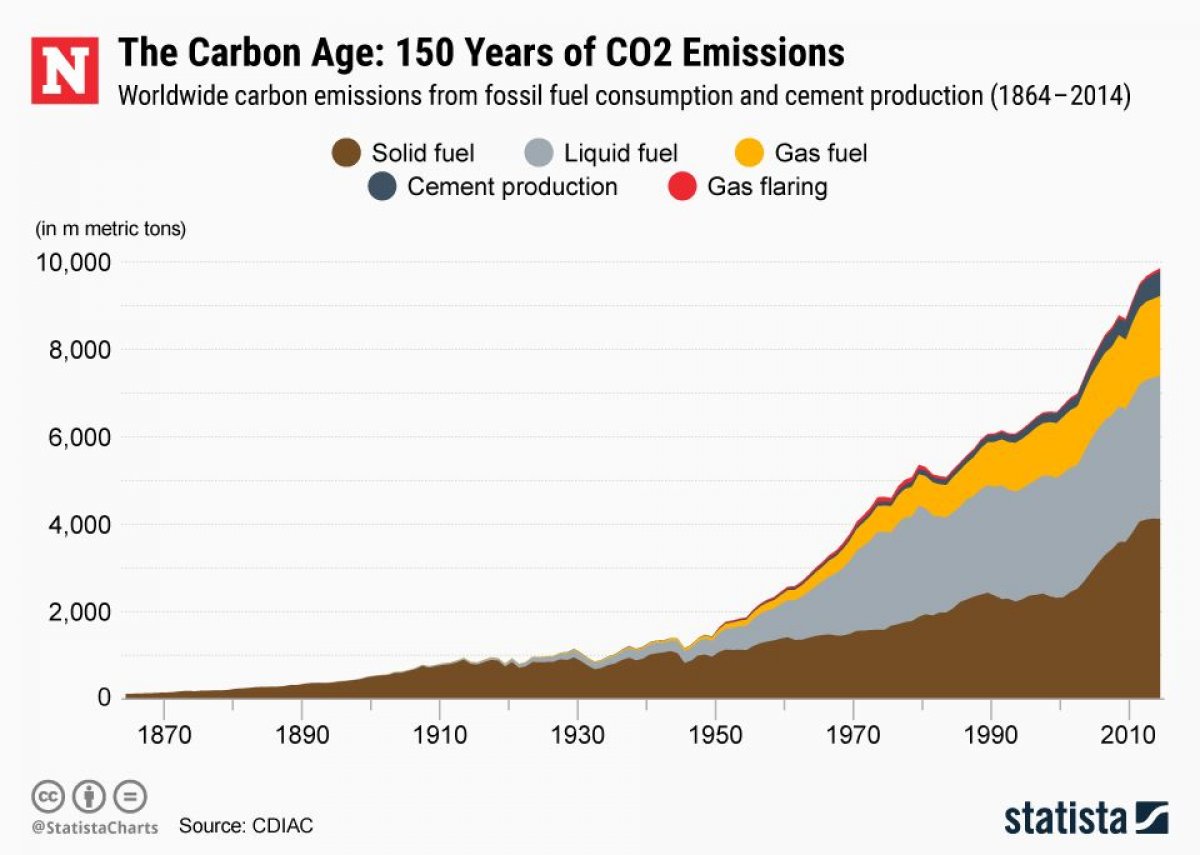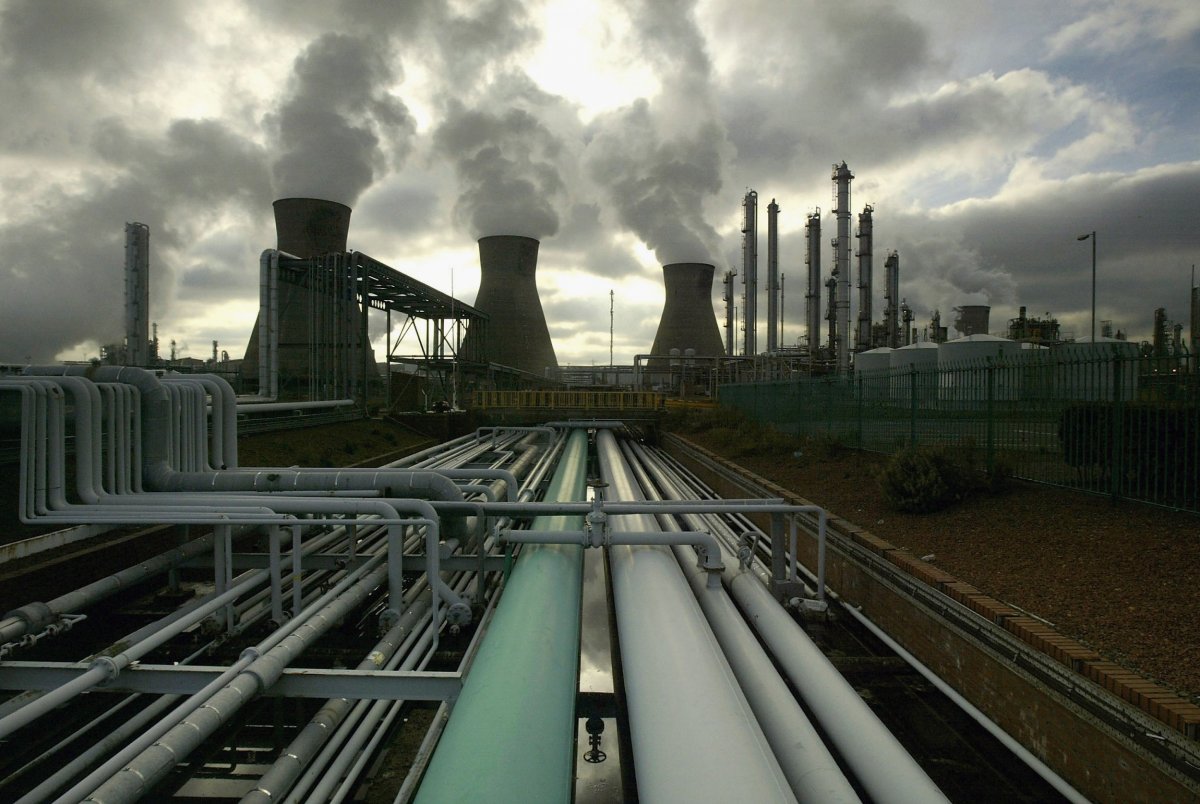Three atoms—one carbon and two oxygen—bond to create a molecule that has defined an era: the age of industry. In the last 150 years, carbon dioxide emissions have soared as we have grown reliant on fossil fuels like coal, natural gas and oil.
Sea levels are rising, crops are failing and diseases like malaria are spreading as the planet chokes under a heady cloud of man-made carbon dioxide.

According to data released by the U.S. Department of Energy's Carbon Dioxide Information Analysis Center (CDIAC), humans have pumped more than 400 billion metric tons of carbon dioxide into the atmosphere since 1751. About half of this total, the CDIAC reported, was released from the late 1980s onwards. The use of solid and liquid fossil fuels—sources like coal and oil—produced about three-quarters of the total. In 2014 alone, burning fossil fuels and creating cement released about 9.9 billion tons of carbon dioxide. This level was an all-time high.
Read more: Under Trump, fewer Republicans think global warming is caused by humans
After more than 30 years in operation, the CDIAC closed its doors last September. Its data has since been exported to a number of other centers, including the NOAA's Ocean Carbon Data System and the California Institute of Technology.

This year already, scientists have warned about melting Arctic ice, extreme weather facing the U.S., and the collapse of marine life. French President Emmanuel Macron advocated for a transition to a "low carbon" global economy last week when he addressed members of the U.S. House and Senate.
Read more: Emmanuel Macron mentions 'science,' gets cheers from Democrats, hesitation from some Republicans
"I believe in building a better future for our children, which requires offering them a planet that is still habitable in 25 years," he told the audience. "Some people think that securing current industries and their jobs is more urgent than transforming our economies to meet the global change of climate change. I hear these concerns, but we must find a smooth transition to a low carbon economy."
His words came in sharp contrast to those of President Donald Trump, who has vowed to take the U.S. out of the Paris climate agreement.
The U.N. will meet in Katowice, Poland at its Climate Change Conference (COP 24) in December to try and address some of the problems of climate change. Experts are currently discussing policy options and technological innovations in Bonn, Germany, in advance of the meeting.
Uncommon Knowledge
Newsweek is committed to challenging conventional wisdom and finding connections in the search for common ground.
Newsweek is committed to challenging conventional wisdom and finding connections in the search for common ground.
About the writer
Katherine Hignett is a reporter based in London. She currently covers current affairs, health and science. Prior to joining Newsweek ... Read more
To read how Newsweek uses AI as a newsroom tool, Click here.








